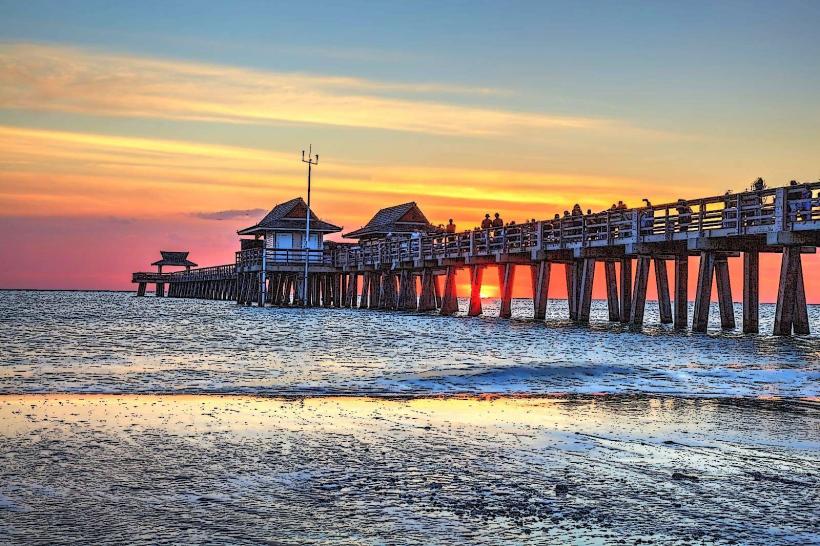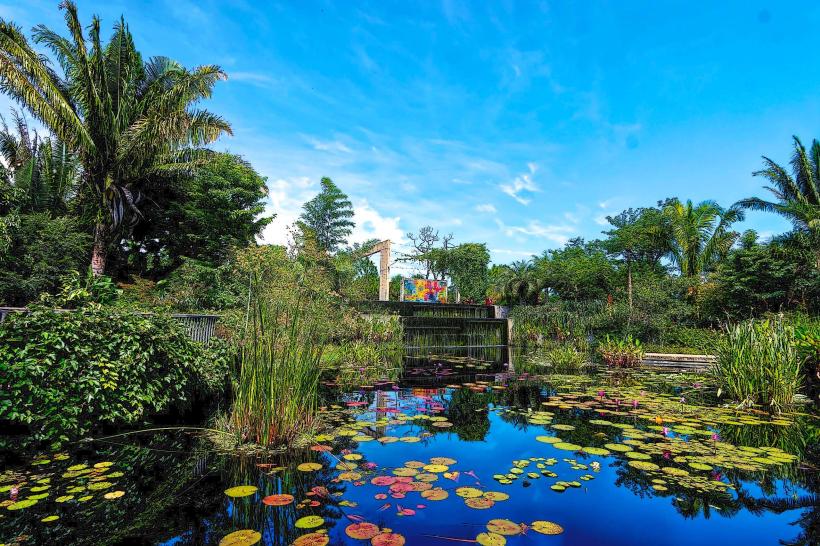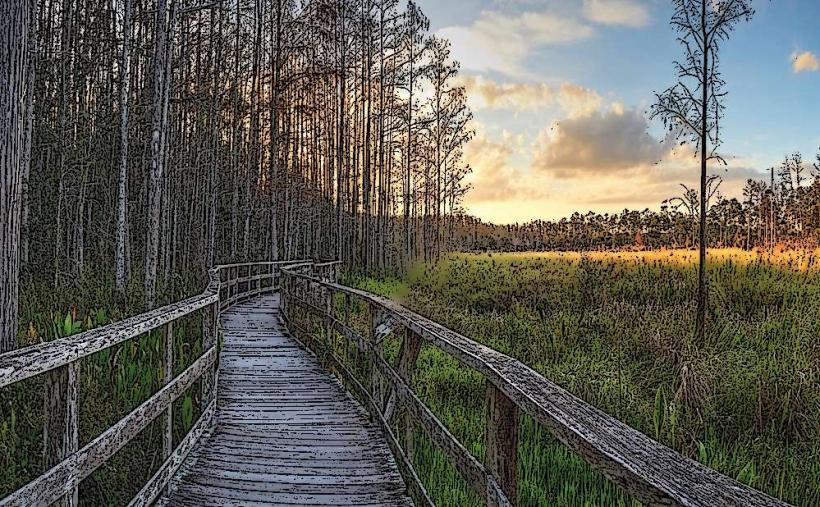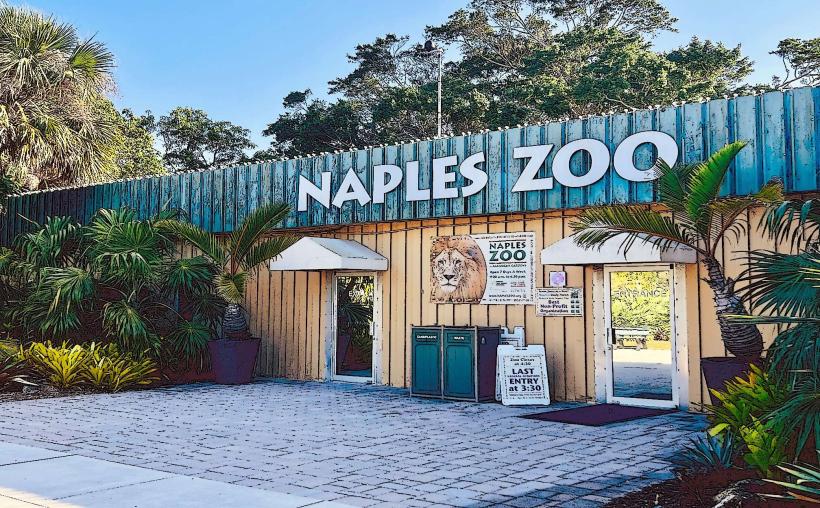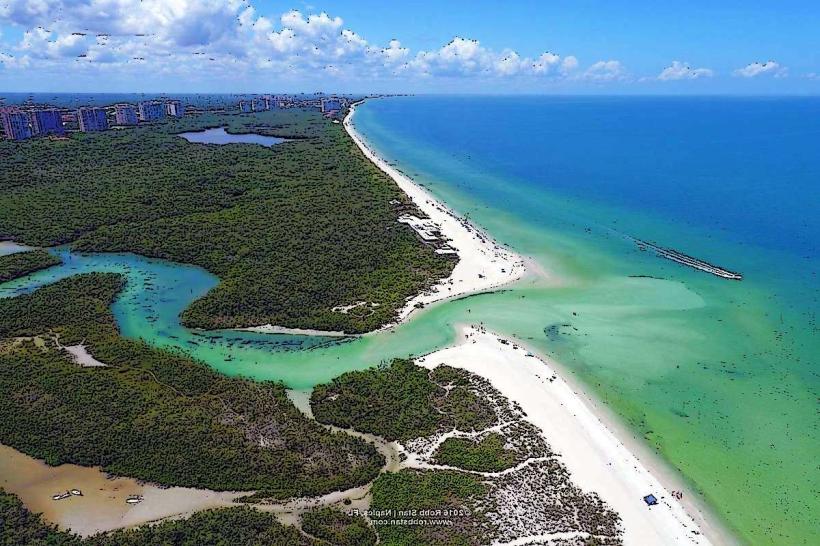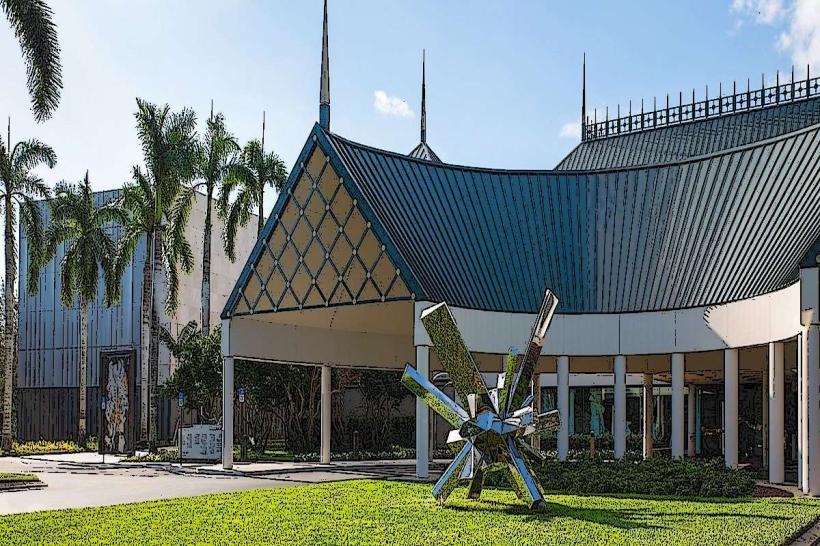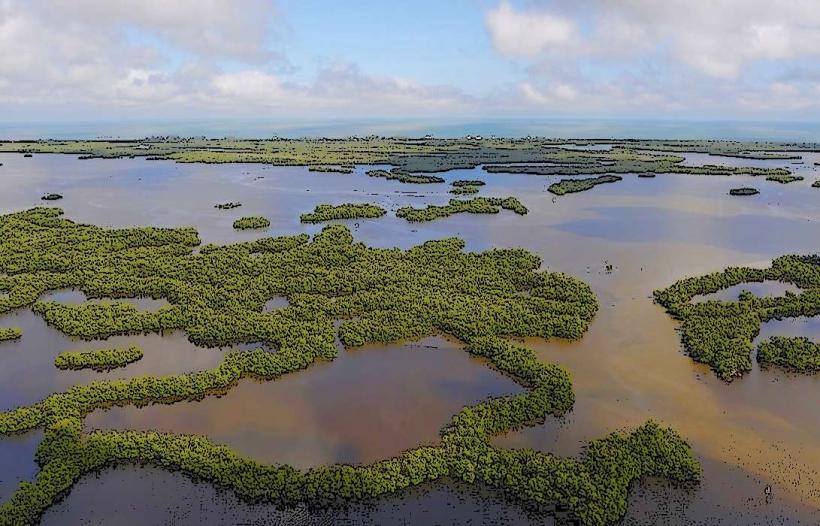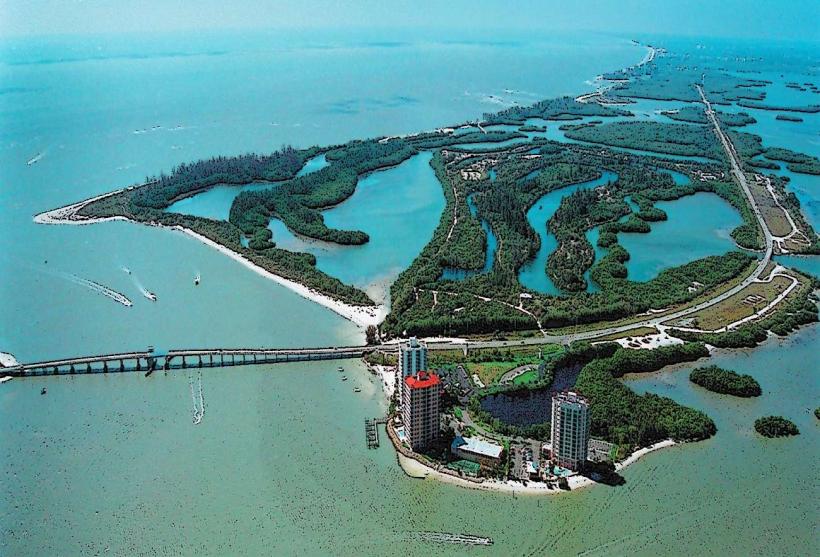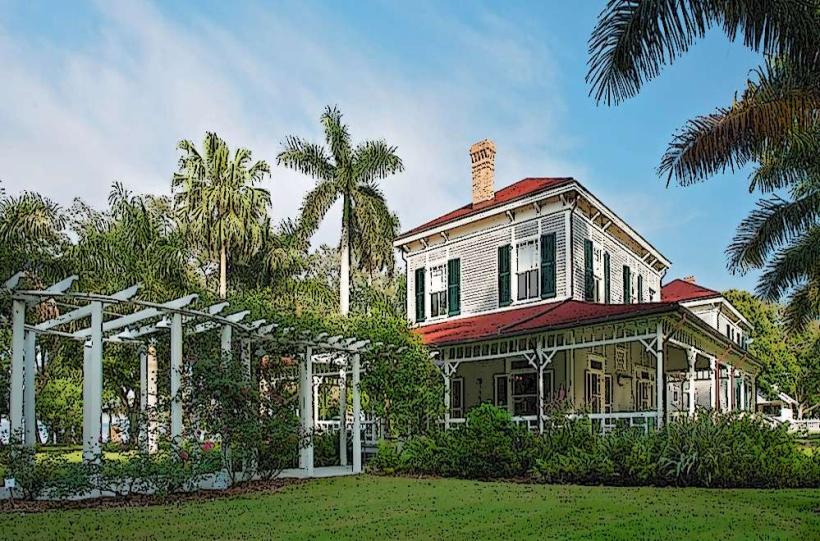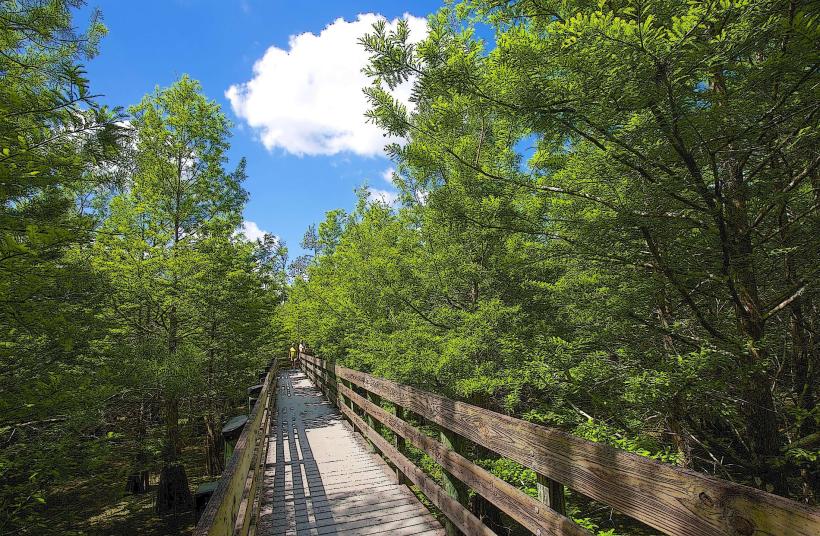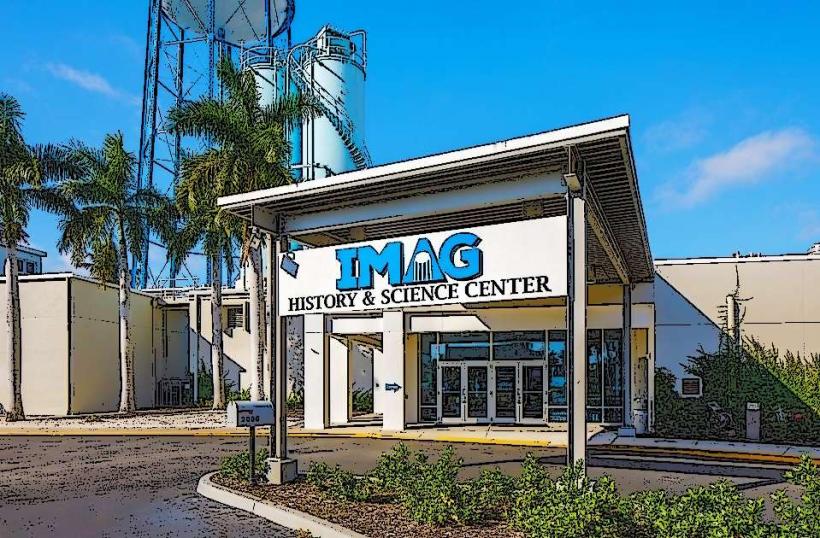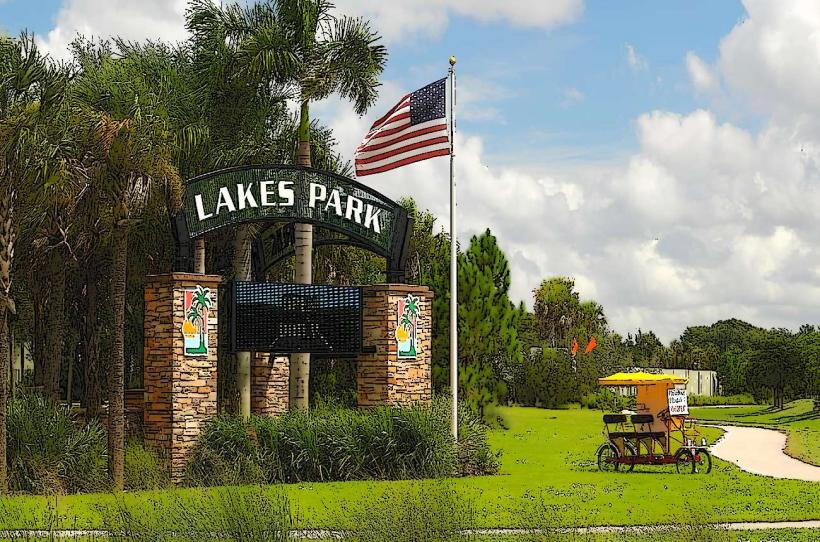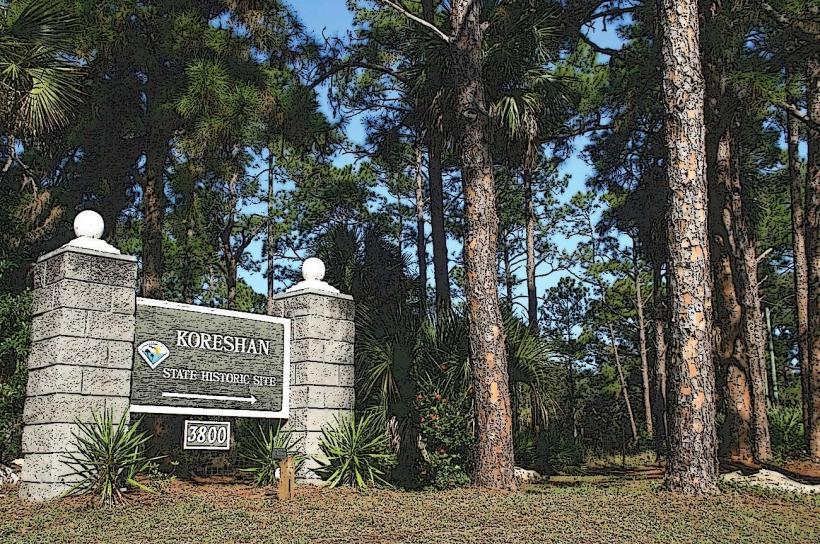Information
Landmark: Delnor-Wiggins Pass State ParkCity: Naples City
Country: USA Florida
Continent: North America
Delnor-Wiggins Pass State Park, Naples City, USA Florida, North America
Delnor-Wiggins Pass State Park, located on a barrier island on Florida’s Gulf Coast in Naples, is one of the most pristine and ecologically significant coastal parks in the state. It is renowned for its unspoiled beaches, protected wildlife, and opportunities for water recreation, all set within a preserved subtropical ecosystem. The park spans approximately 166 acres and is managed by the Florida Department of Environmental Protection.
Natural Environment
The park features several distinct ecosystems:
Coastal Dunes: The beach area is backed by natural dunes stabilized by native plants like sea oats and beach morning glories, offering critical habitat for nesting sea turtles and shorebirds.
Mangrove Forests: The inland waterways and estuaries are lined with red, black, and white mangroves that help prevent erosion, filter water, and support fish nurseries.
Tidal Estuaries and Bays: These support diverse aquatic life and offer a feeding ground for wading birds, dolphins, and manatees.
Hard-Bottom Reef: Located offshore, this submerged limestone shelf attracts marine species and is a snorkeling destination.
Wildlife
Delnor-Wiggins is a habitat for a variety of wildlife, both resident and migratory:
Birds: Ospreys, bald eagles, herons, ibises, pelicans, and roseate spoonbills.
Marine life: Loggerhead sea turtles (nesting from May to October), dolphins, manatees, stingrays, and various reef fish.
Mammals and reptiles: Raccoons, marsh rabbits, gopher tortoises, and snakes like the black racer.
Recreational Activities
1. Beach Activities
The park offers one mile of white-sand Gulf-front beach, ideal for sunbathing, shell collecting, swimming, and snorkeling.
The beach is consistently rated among Florida’s cleanest and most scenic.
Designated swim areas are protected and patrolled for safety.
2. Snorkeling and Scuba Diving
The reef offshore from Parking Lot #2 is a popular snorkeling spot with hard-bottom formations that attract tropical fish and crustaceans.
Diving is allowed in designated areas, with caution for currents and boat traffic.
3. Fishing
Anglers can fish from shore (except within 300 feet of the lifeguarded swimming areas), the pass, or by launching from the park's boat ramp.
Common catches include snook, sheepshead, redfish, pompano, and Spanish mackerel.
4. Boating and Paddling
A boat ramp on the Cocohatchee River provides Gulf access through Wiggins Pass.
Kayaking and paddleboarding are popular along the inland estuaries and mangrove tunnels.
5. Wildlife Viewing and Birdwatching
Early mornings are excellent for birdwatching, especially near the tidal estuaries and the observation tower.
Seasonal ranger-led walks introduce visitors to migratory and resident species.
6. Hiking
A short nature trail loops through a shaded hammock ecosystem with interpretive signs on native flora and fauna.
An observation deck at the end of the trail overlooks Wiggins Pass and surrounding estuaries.
7. Picnicking
Several picnic areas with grills and shaded tables are located throughout the park.
A large covered pavilion (reservable in advance) can host up to 100 people for gatherings.
8. Ranger Programs
Free guided nature walks are offered weekly, usually on Thursdays, exploring park ecology, birds, and local history.
Occasional themed events include coastal cleanup days, turtle talks, and photography tours.
Facilities and Accessibility
Parking: Five numbered lots (note: as of early 2025, only lots 1 and 2 are open due to hurricane recovery).
Restrooms and Showers: Portable toilets and freshwater rinse stations are available at each parking lot.
Concessions: Naples Beach Adventures (at Lot 4, if open) rents chairs, umbrellas, and water sports gear and offers food and drinks.
Beach Wheelchairs: Available for free use at Lot 1 and 2 (first-come, first-served).
Pets: Allowed in designated areas (not on the beach) and must be leashed.
Park Logistics
Hours: Open daily from 8 AM until sunset, including holidays.
Entry Fee: $6 per vehicle (2–8 people), $4 for single-occupant vehicles, $2 for pedestrians or cyclists.
Boat Ramp Fee: Additional $5 for boat trailers.
Environmental Importance
Delnor-Wiggins is part of Florida’s efforts to preserve undeveloped coastline and estuarine environments. It serves as a refuge for endangered species and plays a key role in:
Protecting sea turtle nesting grounds
Maintaining clean coastal waters through mangrove and dune preservation
Educating the public on ecological conservation
Hurricane Impact and Recovery (as of 2025)
The park suffered significant damage from hurricanes and was partially closed for many months. As of February 2025:
The main beach area, boat ramp, and parking lots 1 and 2 have reopened.
The northern part of the park, including lots 3–5 and certain trails, remains closed pending restoration.
Delnor-Wiggins Pass State Park is one of the last remaining undeveloped barrier islands in southwest Florida. It offers a rare combination of quiet natural beauty, family-friendly amenities, and protected ecological diversity—making it a treasured destination for both recreation and conservation.

